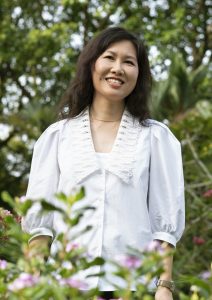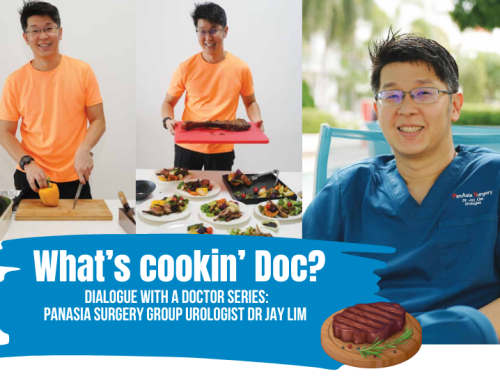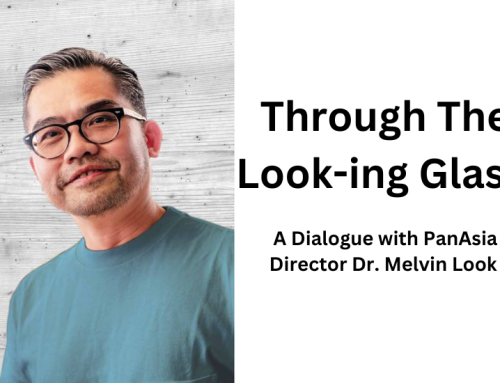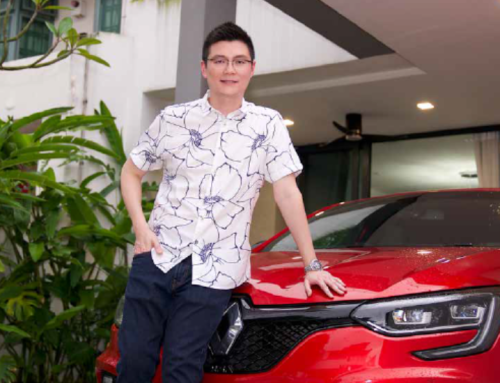
Walking is simple, free and one of the easiest ways to get more active. It can help you to lose weight and become healthier. In fact, walking briskly can help you to build stamina, burn excess calories and make your heart stronger. And you do not even have to walk for hours. A brisk 10-minute daily walk has lots of health benefits and counts as a form of weekly exercise. Indeed, enjoying your daily walks can be a simple and good way to build up your health and wellness.
DR LYNNE LIM: To start, thank you for approaching me to do this interview. And to your question, I think of “health” as having objective clinical measures, whilst “wellness” is intangible and personal. For me, “health” means having all body systems functioning well for our age, allowing us to live life fully. “Wellness” suggests a happy state of mental, emotional, spiritual, intellectual and social balance. Though used together, they do not go together. Some patients show great equanimity battling terrible diseases; some patients in perfect health are edgy and miserable.
For me, I only became more health conscious after suffering spinal disc injuries due to long surgeries related to work. Ear Nose Throat surgeons have one of the highest rates of neck and back spinal injuries. The first time I realized things will not be quite the same anymore was when I received my CPF Elder Shield letter at age forty. I used to sleep just four hours, but now I need six hours of sleep. Your body naturally tells you to take care of your health rather harshly, in no uncertain terms.
You spoke about the spinal disc injuries you sustained because of your work. How have these affected you and how do you take care of yourself in light of your injuries? You also spoke about the long surgeries you have to do, which must add to an already considerable workload.
How do you balance between health and work?
LL: I have had many curveballs of health issues come my way, especially in the last two years. I do not do the usual exercises, sports or gym due to my spinal disc issues. All I do is walk, do some Pilates, and engage in physiotherapy!
For doctors, more than just our busy work life, the real challenge is mental – the unpredictable work life and the need to be hypervigilant always, even more so during COVID. You never quite stop thinking about your patients as things can change quickly.
We need to do our best to stay healthy. If there is discipline, we will incorporate healthy initiatives, which will become a habit even with a busy work life. I have lady doctor friends who get up at 5am to exercise, and still get their kids to school and then start work. In the last 5 years, I have tried to have a better work life balance. I get up 2 hours before work so that I get a sense of calm. I eat a simple breakfast whilst reading the newspapers and do some important paperwork before clinic. At lunch, I usually eat quickly in 15 minutes, so that I get to walk. I will just walk everywhere and anywhere. | try to take in what is happening, take some photos, observe small things, get some sun, and put things into perspective.
Without wellness, there is no health. I am happy with little things. Whilst taking care of mundane everyday things, I watch a wide range of TV programs to feel the pulse of our world – Manga, Korean, English, Spanish, UK, Indian, Japanese, Chinese dramas, documentaries, historical or war movies. Movies make me laugh, cry and wonder at the splendor that is life — it is like an intimate friend; it is wellness. On Sundays, I go for longer walks with my husband. I really must do better — even with disc issues, one can still swim, do stationary bikes or elliptical trainers.
Speaking of other countries, are there things we can learn from others in the way health and wellness are viewed and approached?
LL: Singaporeans are blessed with good infrastructure. We have a great healthcare system. NParks has made our walking, cycling and jogging paths uniquely beautiful and efficient. Even our celebrated hawker food culture is increasingly healthy. However, there is very high stress amongst Singaporeans – a small nation with limited resources. We are always on edge. We need to learn to laugh at ourselves a bit more, be kinder to ourselves, give thanks and seek simplicity.
Countries ranking high in health and wellness almost always have the same mix of ingredients. A good state of mind is key. Simple and clean food, an active lifestyle and natural geography. Swedes walk and cycle with a passion, with 30% of city-dwellers cycling to work. Their diet is high in unsaturated fats and low in carbohydrates. In Japan, the idea is to have everything in moderation: Hara hachi bu (eat till only 80% full), Rajio Taisou (early morning group exercise when the radio comes on), and walking everywhere.
Eating is a national passion in Singapore. Do you pay much attention to what you eat? And do you maintain a diet?
LL: I do not do any diets. I also do not pay too much attention to what | eat, but I eat simple. If I am miserable in a certain diet, I think the stress would undo any benefits. Stress increases blood pressure, reduces heart pumping ability, triggers abnormal rhythms, and activates clotting and inflammatory responses. Stress is a hidden slayer.
I believe the body will naturally reject what does not sit well with it. If we carefully observe how our body reacts to certain diets, we will find one that is best for us. This may differ from person to person and change with time. But the basic principles apply – a balanced diet of more vegetable and fruit, less salt, less sugar, less bad fats, some protein, and some carbohydrates.
While I have never gone on any type of diet, I do think certain diets are healthier, and well within our reach, if we follow the guiding principles. Japan has the most centenarians in the world. The traditional Japanese diet has many small dishes, with rice and soup. The variety and small portions are important. Most of it is simmered, steamed, raw, boiled or grilled. Nonetheless, it tastes good as they skilfully use seasonings like miso, vinegar, mirin, sake and soy in a diet full of legumes, fish, seafood, vegetable and fruit. The traditional Italian diet is not pizza or pasta, but fresh vegetables, unsaturated fat oil, some red wine and lean meat.
Do you take any supplements?
LL: I have a sun allergy, so supplement with Vitamin D. Low vitamin D results in lower immunity, poorer neurological and cardiac health. When I was having a thyroid condition last year, I supplemented with vitamins and minerals to protect the thyroid.
If you can eat a balanced diet, supplements are not needed; and overdosing with 10 separate supplements is expensive and may even be harmful. We need to zero in on the science, and not be blinded by the marketing. For example, vitamin E has not been proven to remove wrinkles. Needs differ for different people. Ladies who are pregnant may need more folate or iron. For the elderly, absorption of vitamin B12 may not be optimal, especially for vegetarians. Deficiency of vitamin B12 can result in memory, dementia and numbness issues. Post menopause, calcium supplementation may be needed if there is osteopenia.
Is physical activity an important part of a healthy lifestyle?
LL: Yes, physical activity is a very important part of a healthy lifestyle. Not just for physical health, but for emotional and mental health. I have not jogged, gone to the gym nor swam for 30 years due to my spine disc issues from huddling over surgeries. So I just walk and walk. A visit to Bhutan three years ago sparked my love affair with long walks. COVID time also introduced me to many parts of Singapore that I had not previously explored. We have such a beautiful country and so many gorgeous trees. I love it especially when there are trees, birds singing and the din of crickets. Komorebi – sunlight that filters through the trees – is just magical. And I love our Botanic Gardens. I hope to become an ambassador for them one day. The Botanic Gardens sees people at their most relaxed and with their guard down.
For me, my walks always make me calmer, more focused and think better – they make me happier. Even just gently stretching helps me wind down and sleep better. Simple exercises to strengthen the core need not be vigorous exercises, but are important for balance, prevention of injury, and maintenance of muscle mass. Done right, some can also give a bit of cardiovascular workout.
Moving on, how many hours of sleep do you get daily? And how do you usually cope with stress?
LL: I used to get only 4 hours of sleep as a young trainee doctor, but I sleep about 5 to 6 hours nowadays. When
I cannot sleep, I would just get up and read, or drink something. When there are too many things to do, I jot them down in my phone calendar and shelve those thoughts for tomorrow. Not having adequate rest for a week is still doable, but beyond that, it is easy to get sick. If your mind is at peace and your heart is cheerful, you will be able to make do without adequate rest. However, should depression set in, one should look to friends, family, and psychology or psychiatric support to break the vicious cycle.
Every day is stressful. We are always dealing with semi-emergencies in our work and personal lives. Just getting
older and being sandwiched between kids and elderly parents can be stressful. Yet, it is when things are the worst that we need to be the most calm. I find refuge in God, family and friends. I cope by not taking things personally, giving thanks for mercies, and remembering that the world continues turning and the sun shines again tomorrow. By putting things in perspective, and knowing I have done my best and cannot do anything more, that helps me to cope.
Coming to the last part of our interview: what are your thoughts on the challenges that modern life poses to health?
LL: Busy individuals should carve out small bits of time so that they can meet their health goals realistically.
Discipline is important at the start, before it becomes a habit. Fifteen minutes each day is better than a two hour
session on a weekend. Do simple things like taking a break and stretching in between long Zoom sessions, cutting back on big meal portions, taking one less drink, walking up the stairs instead of taking the lift, and just skipping the sauce. Modern life makes us sedentary and gadget zombies. People in the olden days do not need marathons, fancy bicycles or gyms. They gardened, farmed, walked to reach places, ate simply, revealed in communal gatherings, laughed and slept easy.
In your line of work, what aspects of health do you often see people neglecting?
LL: Modern gadgets like smart phones and wireless headphones/earphones are already leading to alarming
rates of neck spinal issues in our teenagers and young adults. Blasting music on earphones around the clock, and time spent at entertainment arcades are leading to acoustic ear shock, tinnitus and hearing loss. From fifty years of age onwards, hearing loss is common. As hearing loss is usually gradual in onset, patients often miss it until it becomes serious, unless there are formal hearing tests done professionally. Hearing loss results in cognition and memory issues, isolation, depression, and withdrawal from society.
Many people with chronic nose block do not know that their noses are blocked as it has become a way of life. Increasingly, I have diagnosed many with allergies of the nose to common airborne allergens like house dust mites, mold, pet dander, and tree pollens. There can be eczema of the skin from undiagnosed food allergies. Such seemingly innocuous conditions can result in snoring and obstructive sleep apnea, which can result in brain fog, frequent colds, headaches, resistant diabetes and increased heart risk. Stress leads people to brux, and this wears out their teeth and causes tension in the neck and jaw, headache and even tinnitus.
How has the COVID era affected the way people view and value health?
LL: COVID has made people pay a lot more attention to health. Many of my patients who used to fly weekly for work, or ignored their health, are now coming in for surgeries that they had delayed for years. For example, they are paying more attention to their snoring. Staying home more, there are also more people who find themselves afflicted by their allergies like house dust mite, mold and cockroach allergies. I have tested and treated many more this year. With stress and depression, I have also seen a sharp rise in tinnitus (ringing in the ears).
Final word. Give a simple advice to people who want to stay healthy.
LL: “Only once you live”, says Yoda. Let’s strive to be happy and healthy so we can live our lives well. Start small, get support and soon, it will become a habit. prime










